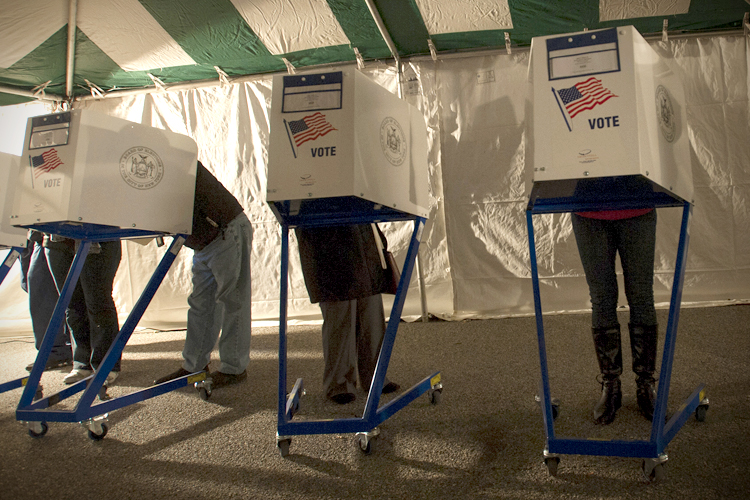Last Thursday, after I wrote about the deep disengagement that millennials display toward politics, a foreign reader on Reddit asked, “Is it possible to decline ballots in the United States?”
Unless you’re voting in Nevada state elections, the answer is a firm “no.” We have no provisions that allow voters to register their unhappiness with the entire field of candidates, no “none of the above” choice at the end of the ballot. But why not? Such a provision could profoundly transform our elections.
In a number of modern democracies (e.g., India, Greece, Canada and the Ukraine) voters can opt to cast an “against all” or “scratch” vote for “none of the above” candidates. (And if this sounds familiar, the idea briefly entered the collective consciousness when it was employed as a plot device in the ’80s Richard Pryor classic “Brewster’s Millions.”) In an ideal world, such an option would be purely ornamental: In healthy democracies that adequately represents their people’s interests, “none of the above” should consistently poll exceedingly low. Only in a country where entrenched political parties fail to represent the public would such an option ever gain widespread popular support … which, when you think about it, probably goes a long way to explaining why there’s no “none of the above” option in America today.
In countries that do allow scratch ballots, the consequences of a victory (or plurality) for “none of the above” vary: In some cases, the open seat is left unfilled, while in others a whole new election is held. (And in Nevada, there are no consequences at all — the candidate with the next highest number of votes simply wins.) And yet, even as a toothless provision with no practical consequences, “none of the above” would have the potential to considerably reshape our politics — by allowing voters to register their unhappiness with the field of candidates in a way that cannot be ignored or “spun.”
The level of embarrassment that a victory for “none of the above” causes to losing politicians cannot be understated. It’s such a powerful tool that Russia had to abandon it entirely in 2006, two short years after scandalous victories for the protest vote in St. Petersburg, Sverdlovsk and Ulyanovsk. As a Times piece from 2004 explained,
In the December parliamentary election, voters of District 181 threw out not only the incumbent, a retired general, but the rest of the pack as well. “Against all,” the box at the bottom of the ballot, received nearly 20 percent of the votes, more than double what any of the 14 actual candidates won.
On March 14, Ulyanovsk tried again. “Against all,” by now a proven winner, increased its vote to 21.5 percent. The best showing among 12 challengers was under 13 percent.
A victory for “none of the above” makes it impossible for politicians to ignore widespread voter dissatisfaction. Unfortunately, here in the States, we have no avenue to express our disapproval unambiguously. If you’re planning to vote but are also unhappy with both major candidates, you’re faced with a lose-lose-lose proposition: you can either vote for the “lesser or two evils,” you can cast your ballot for a third party candidate, or you stay home on Election Day.
Each gesture will be misinterpreted by the media, effectively minimizing and dismissing measures of our widespread dissatisfaction. Those voters who “hold their noses” and pick the least objectionable candidate will be counted as partisans (and probably mischaracterized as “swing voters”), while those who stay home will be lumped in with real non-voters (who weren’t going to vote regardless of the names on the ballot). Meanwhile, wacko third-party candidates are credited with a lot of unearned support. (Sorry, but I don’t think there’s actually a large group of people who wanted Ross Perot or Ralph Nader to be the leader of the free world.)
As it stands, our system is great for the Democratic and Republican parties, who happily maintain the fiction that all Americans can be served by our two enthusiastically pro-business parties. But it’s a system that’s pretty crappy for everyone else. Why can’t I say so with my vote?

